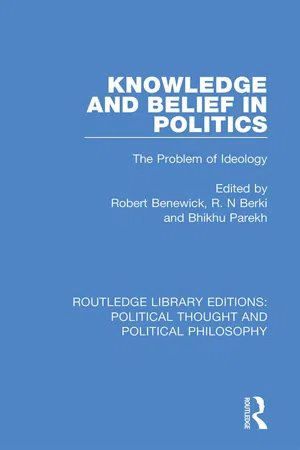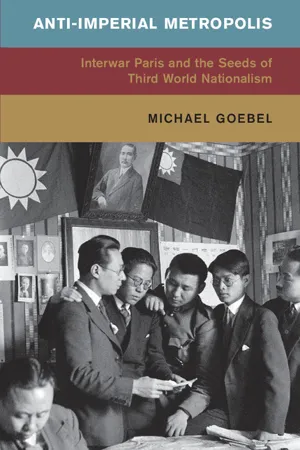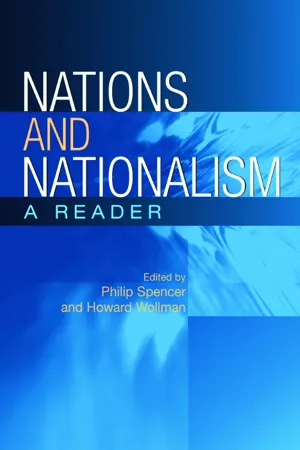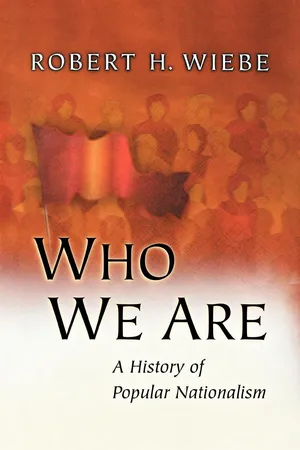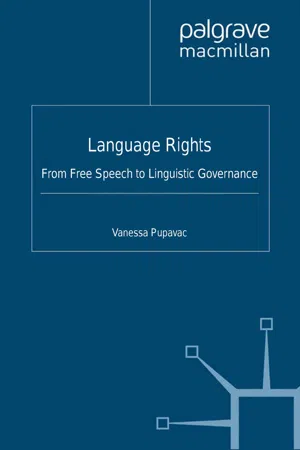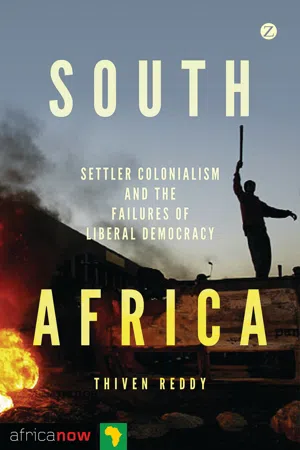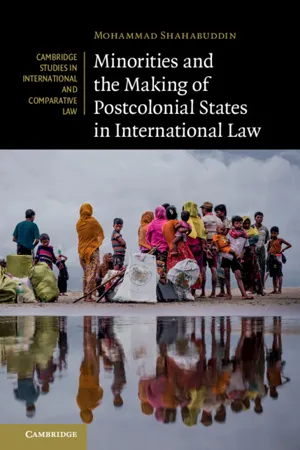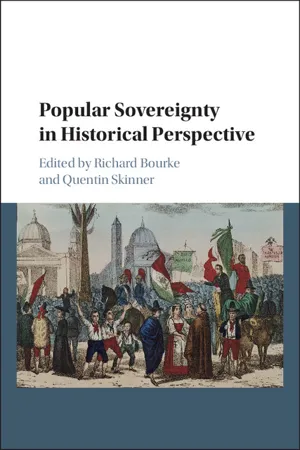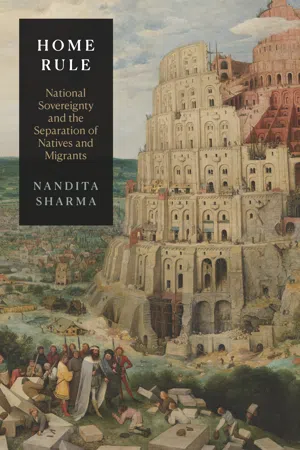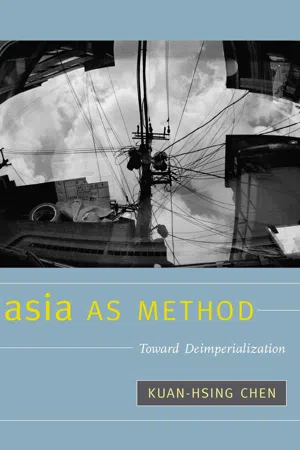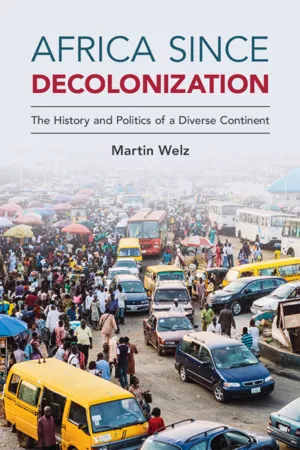Politics & International Relations
Anti Colonial Nationalism
Anti-colonial nationalism refers to the political movements and ideologies aimed at resisting and overthrowing colonial rule and asserting national independence. It encompasses a range of strategies and tactics, including armed resistance, civil disobedience, and diplomatic efforts. Anti-colonial nationalism often seeks to reclaim indigenous culture, language, and identity, and to establish self-governing institutions.
Written by Perlego with AI-assistance
Related key terms
1 of 5
11 Key excerpts on "Anti Colonial Nationalism"
- eBook - ePub
Knowledge and Belief in Politics
The Problem of Ideology
- Robert Benewick, R. N Berki, Bhikhu Parekh, Robert Benewick, R. N Berki, Bhikhu Parekh(Authors)
- 2019(Publication Date)
- Routledge(Publisher)
Black Nationalism and Anti-colonialismMALCOLM CROSS
The assertion that colonialism induced a reactive demand by subject people for self-determination is neither novel nor surprising. But this response produced ideological positions that vary in relation to a particular phase of decolonization and, at any one point in time, to exigencies of social stratification. This paper will draw on examples from the West Indies to illustrate this process.Colonialism was not a simple force and neither was its reaction. It tended to have within it a number of crucial strands. Of these I wish to isolate three: economic domination, political domination, and racial domination. I do not wish to suggest that the content of anti-colonial movements was entirely reactive for this is far from being true (especially outside the West Indies) but the understanding of ideological movements aiming at some form of self-determination is facilitated by conceiving of responses to the challenge of colonialism along these same three dimensions.The approach to nationalism, defined as a group’s claim for self-determination, that focuses on its essentially reactive properties is hardly original. Lord Acton certainly perceived it in this manner. He was careful to point out, however, that if it is to serve a truly political role or if it is to act as a vehicle for social change, then, however oppressive the situation may be, the reaction has to be conjoined with some positive notion of a new unity or greater freedom. Thus ‘… though oppression may give rise to violent and repeated outbreaks, like the convulsions of a man in pain, it cannot mature a settled purpose and plan of regeneration, unless a new notion of happiness is joined to the sense of present evil’.1 - eBook - PDF
Anti-Imperial Metropolis
Interwar Paris and the Seeds of Third World Nationalism
- Michael Goebel(Author)
- 2015(Publication Date)
- Cambridge University Press(Publisher)
8 Vernacularizing Nationalism An Outcome Foretold? Virtually all the political movements treated in the previous chapters of this book have received the label of “nationalism” at one point or another. From the APRA and the Guomindang to the Annamite Independence Party (PAI), the ´ Etoile Nord-Africaine, and Kouyat´ e’s Union of Negro Workers (UTN); scholars have seen them all as instances in the history of “nationalism.” 1 This classification has come alongside an interpretation stressing the role that these organizations played in bringing about the later independence of former colonies, allowing Erez Manela, for instance, to treat the Wilsonian Moment as a key episode in the history of “anticolonial nationalism.” 2 As this chapter shows, the label “nationalism” is a defensible one to deal with the politics explored in this work. Surely, people like Ho Chi Minh, Lamine Senghor, and Messali Hadj, but also Zhou Enlai or Carlos Quijano helped routinize the idea that theirs were “nations” in every legitimate sense of the term, which were oppressed and needed to be freed from the meddling and despotism of “foreigners.” As anti-imperialists they were nationalists by default. Citing the right of peoples to self-determination, they imagined a world without empires, one that instead would be composed of free and equal nations; and in most cases ones that had a state of their own. It is important to note that use of the marker “nationalism” to describe early twentieth-century anti-imperialism has recently come under scholarly attack. The most common argument against reading the history of decol- onization as a history of nationalism holds that attaching the label with the benefit of hindsight overlooks alternatives to the nation-state that still looked viable in the 1920s, and therefore results in a teleological reading of 1 For uses of the term, see e.g. - eBook - PDF
Nations and Nationalism
A Reader
- Philip Spencer, Howard Wollman(Authors)
- 2005(Publication Date)
- Edinburgh University Press(Publisher)
How can we ignore this without reducing the experience of anti-colonial nationalism to a caricature of itself? To be fair to Anderson, it must be said that he is not alone to blame. The difficulty, I am now convinced, arises because we have all taken the claims of nationalism to be a political movement much too literally and much too seriously. In India, for instance, any standard nationalist history will tell us that nationalism proper began in 1885 with the formation of the Indian National Congress. It might also tell us that the decade preceding this was a period of preparation, when several provincial political associations were formed. Prior to that, from the 1820s to the 1870s, was the period of `social reform', when colonial enlightenment was beginning to `modernize' the customs and institu-tions of a traditional society and the political spirit was still very much that of collaboration with the colonial regime: nationalism had still not emerged. This history, when submitted to a sophisticated sociological analysis, cannot but converge with Anderson's formulations. In fact, since it seeks to replicate in P ARTHA C HATTERJEE 239 its own history the history of the modern state in Europe, nationalism's self-representation will inevitably corroborate Anderson's decoding of the nation-alist myth. I think, however, that, as history, nationalism's autobiography is fundamentally flawed. By my reading, anti-colonial nationalism creates its own domain of sover-eignty within colonial society well before it begins its political battle with the imperial power. It does this by dividing the world of social institutions and practices into two domains ± the material and the spiritual. The material is the domain of the `outside', of the economy and of state-craft, of science and technology, a domain where the West had proved its superiority and the East had succumbed. - eBook - PDF
Who We Are
A History of Popular Nationalism
- Robert H. Wiebe(Author)
- 2018(Publication Date)
- Princeton University Press(Publisher)
Rather than an expression of connectedness, it became a rationale for exclusion. O n Zanzibar, black migrants from the mainland w i t h no special claim on the island marched to the slogan of Africa for the Africans in I 9 6 3 as they slaughtered thousands of longtime resident Arabs. F R E E D O M By far the most common forms of nationalism outside of Europe were those generated by European colonialism and its postcolonial successors. Because so much anguish came later, it has become ever more fashionable to underplay the harshness of these colonial regimes: their brutal extraction of labor, crude sei- zure of land, and violent protection of privilege, all from the fists of alien racists. In their o w n time they roused a hatred that made passionate, popular anticolonialism self-justifying. Liberalizing co- lonial rule, as slaveholders had discovered earlier, only whetted the appetite for more: Charitable tyranny w o n very few converts. If, for example, some Senegalese enjoyed some rights as citoyens under the French, the anticolonial leader Leopold Sedar Senghor then demanded all rights for all Senegalese through indepen- dence. Although not many colonial subjects openly resisted impe- rial rule, a great many w h o had been silent celebrated indepen- dence just as ecstatically when it came. I n a mistake repeated over and over again, Western observers commonly called all of these resistance movements nationalism. O n the contrary, anticolonialism was the all-encompassing mo- bilizes nationalism just one of its expressions. In fact, without crit- ical contributions from the imperialists themselves, nationalism might well have sputtered and stalled. British colonial rule in Af- rica illustrated that reinforcing process. Encountering many groups 164 CHAPTER 6 in various states of mutual tolerance, competition, and warfare, the British proceeded to freeze by law what had previously been fluid. - eBook - PDF
Language Rights
From Free Speech to Linguistic Governance
- V. Pupavac(Author)
- 2012(Publication Date)
- Palgrave Macmillan(Publisher)
Anti-colonial language politics believed in human potentiality, creativity and emancipation. Yet, as Ngũgĩ wa Thiong outlines, ‘Even at their most Anti-Colonial Language Politics 145 radical and pro-African position ... they still took it as axiomatic that the renaissance of African cultures lay in the languages of Europe’ (Ngũgĩ, 1986, p. 5). Anti-colonial approaches to language questions in national liberation struggles differ significantly from those of post-colonial studies or linguistic imperialism critiques inclined towards cultural relativism (Sharpe, 2000). Major anti-colonial writings identified with radical universalist humanist ideals (Fanon, 1967, [1961], pp. 251–5; 2008, [1952], pp. 178–81; James, 1977, p. 21; 2001, [1938]; Wright, 1964, p. 63). They condemned how European politics was failing progressive humanist ideals, and hoped that anti-colo- nial struggle would forge a more enlightened humanism (Césaire, 1995, [1939], p. 125; Fanon, 1967, [1961], pp. 253–5). Key anti-colonial intellectu- als identified themselves as black Europeans or Westerners, and contested the idea of returning to non-European roots (James, 2001, [1938]; Wright, 1964, pp. 44–7). Anti-colonialism and negritude debates To understand anti-colonial positions on culture and language, it is useful to consider negritude debates, developed against the experience of racism, and the contradictions of French colonial assimilatory or associational poli- cies. Two core strands of negritude have been identified: one developed by Senegalese academic and politician Léopold Sédar Senghor (1906–2001), and the other by Martinique poet and politician Amié Césaire (1913–2008). Senghor’s concept of negritude involves ‘cultural métissage’ against assim- ilation to the colonial culture (Bernsconi and Cook, 2003, p. 4). Senghor was from Senegalese territories subject to stronger assimilatory policies than other French colonies. - Doctor Thiven Reddy(Author)
- 2015(Publication Date)
- Zed Books(Publisher)
107 5| Nationalism, ANC and domination without hegemony In this chapter, I focus on that other modern phenomenon, nationalism. I discuss its organisational expressions, which historically articulate the interests of the intermedi-ary strata of settler-colonial society. When claiming to speak for the nation, it steers subaltern political rationality in directions conducive to its own interests. Unlike in Europe, modernity was introduced in South Africa through external political inter-ventions. The violent colonial conquest and its policies generated the resistance of the colonised, who fought for recognition of their humanity in a struggle for national lib-eration. The limits of post-Apartheid liberal democracy can be understood only with reference to the equally intense counterforces of settler colonialism and resistance. In this politics of recognition, the subaltern has two adversaries: the coloniser as enemy and the nationalist elite as class rival. It eventually obtained recognition from colonised elites only though mass mobilisation; together, they were able to wrest sub-stantive concessions from the long-established white power structure. From the 1880s to around 1940, the colonised elite considered the subaltern mass irrelevant to the fight for national recognition and political significance and questioned its right of full admis-sion into the political community. Following dominant colonial discourse, it believed the subaltern was ‘backward’, ‘uncivilised’ and in need of tutoring to be ready for civic life. It thus concentrated on rights for the ‘civilised’, i.e., its members themselves, be-cause their education and property qualified as civilised values in colonial modernity. When the colonial state began to take popular forms of resistance more seriously than it had taken the colonised elite, the latter realised that the subaltern could not be ignored.- Mohammad Shahabuddin(Author)
- 2021(Publication Date)
- Cambridge University Press(Publisher)
P A R T I Ethno-nationalism and the Ideology of the Postcolonial State 1 Geneses of Ethno-nationalism in Postcolonial States 1.1 Introduction Ethno-nationalist politics and, in extreme cases, ethnic violence are defin- ing features of postcolonial states. This is not to say that other states are completely immune from these devastating phenomena. Even in a number of Western democracies, such as Belgium, Canada, France, Spain, and the United Kingdom, minority groups keep challenging the existing state structures in one way or another. However, the prolonged colonial rule that caused the near-complete destruction of indigenous economic and political structures in order to accommodate colonial-capitalist modes of exploitation has shaped ethno-nationalism in postcolonial states in unique ways. Therefore, I begin my examination of international law’s engage- ments with postcolonial states and the consequences of such engagements for minorities – the key focus of the book – with an analysis of some of the peculiar ways in which ethno-nationalism in postcolonial states takes root. There is a general tendency among liberal scholars to explain destructive forces of nationalism in the non-Western world as a distortion of the otherwise grand liberal connotation and to blame specific ‘ sociological’ conditions in those societies for such forces. 1 For those scholars, therefore, the deviation from the normal version of nationalism to a destructive one needs to be analysed by ‘ grouping and classifying the various empirical cases and then constructing coherent sets of sociological conditions which may be said to be the cause for each particular type of deviation’. 2 Once established, this sociological understanding of nationalism would then guide the 1 For a detailed account, see Partha Chatterjee, Nationalist Thought and the Colonial World (London: Zed Books for the United Nations University, 1986), 1–6. 2 Ibid., 3–4. 23- Richard Bourke, Quentin Skinner(Authors)
- 2016(Publication Date)
- Cambridge University Press(Publisher)
12 Popular sovereignty and anti-colonialism Karuna Mantena I In the history of popular sovereignty, the twentieth century marks the moment of its greatest expansion and acceptance. 1 And within this story of expansion, the political processes of decolonisation came to play a defining role. Decolonisation was the pivot whereby self-determination became the dominant principle of political legitimacy – gaining inter- national legal recognition and codification for the first time – and the nation-state became its institutional counterpart. Together, this enabled the simultaneous delegitimisation of empire as a political form and a conclusive rejection of monarchy as a principle of legitimacy. In these terms, decolonisation would appear responsible for the geographic reach of a distinct institutional–ideological nexus, one that in effect marked the political transformation towards popular sovereignty on a truly global scale. This has come to be a standard view of the historical achievement of decolonisation and the project of anti-colonial nationalism. But while it is compelling and correct in the broadest sense, it also harbours impor- tant limitations for historical and critical analysis. First, the spread of popular sovereignty is understood primarily as a story of diffusion, of set- tled concepts and institutional forms that moved outward from Europe to encompass the globe. Decolonisation here is seen to complete older political trajectories. It serves as the vehicle, on the one hand, for the uni- versalisation of the Westphalian state system and, on the other, the spread of a model of national self-determination, of popular sovereignty in its nationalist form that had come to fruition in nineteenth-century Europe.- eBook - PDF
Home Rule
National Sovereignty and the Separation of Natives and Migrants
- Nandita Sharma(Author)
- 2020(Publication Date)
- Duke University Press Books(Publisher)
It allows us to see, in other words, that postcolonialism is a containment of demands for decolonization. Such a conceptualization is a refusal of the historical amnesia produced by nationalisms. What nationalists willfully forget is that the formation and maintenance of the national form of state power is always already a violent process. People are neither easily excluded nor easily included. The actions used to describe the late-twentieth- century breakup of the former Yugoslavia into several new nation-states— “murder, torture, arbitrary arrest and detention, extra-judicial executions, rape and sexual assaults, confinement of civilian population in ghetto areas, forcible removal, displacement and deportation of civilian population, delib-erate military attacks or threats of attacks on civilians and civilian areas, and wanton destruction of property”—are not unique (uN Security Council 1992; also see Shraga and Zacklin 1994). From the start and the world over, elements of these processes are part and parcel of making “nations” and achieving “na-tional self-determination.” Partitions, expulsions from nationalized territory through “population transfers,” and social and legal exclusion from the nation are par for the course. They are parts of the biopolitical process of creating and separating those constituted as a “people of a place” and those relegated to being a “people out of place.” PostColonialism and the Containment oF deColonization The idea that National-Natives are colonized by Migrants is one aspect of the confusion about what exactly postcolonialism is. One of the most commonly expressed complaints—and confusions—about postcolonialism is that the “post” in postcolonialism fails to acknowledge that some people are still col-onized, be it politically, economically, and/or socially (Brennan 1997, 2; Dirlik 1999; San Juan 2002; Lazarus 2002; B. Parry 2004, 9). - eBook - PDF
Asia as Method
Toward Deimperialization
- Kuan-Hsing Chen(Author)
- 2010(Publication Date)
- Duke University Press Books(Publisher)
In this way, the original colonizers use old colonial link-ages to control the former colonies. Predicated on the inside-outside metaphor—or, to use Fanon’s ex-pression, the Manichaean divide—colonialism, driven by the expanding forces of capital, established in the colonies the structure of the nation-state as its mediating agent to unify internal differences. Once the sys-tem of the nation-state was imposed around the globe, the most viable mechanism for colonies to use in evicting the outsiders (colonizers) was, ironically, the nation-building and state-making project. Third-world nationalism, as a response and reaction to colonialism, was therefore seen as an imposed but necessary historical choice, a choice made in order to affirm the new nation-states’ autonomy from the colonizing forces. In territories divided and occupied by colonial powers throughout Africa, Latin America, and Asia, colonialist governments saw the rise of nation-alist independence movements not as a threat, but as a moment of re-adjustment, an opportunity to shed their responsibilities and reduce their costs while still maintaining colonial linkages, markets, and political influ-ence. “Self-determination,” a slogan heralded by the younger generation of imperialist powers such as the United States, proved to be not so much a humanist concern, but a political strategy on the part of the imperial-ists to scramble the already occupied territories in order to secure for themselves a larger piece of the cake in the name of “national interests.” J. A. Hobson, as early as 1902, had remarked on the close ties between nationalism and imperialism: the latter, he argued, cannot function with-out the former (Hobson 1965 [1902]). By the 1940s, it had become clear that neoimperial nationalism was in good shape. Césaire’s Discourse on Colonialism warned third-world intellectuals not to be deceived by this rising new power. - eBook - PDF
Africa since Decolonization
The History and Politics of a Diverse Continent
- Martin Welz(Author)
- 2021(Publication Date)
- Cambridge University Press(Publisher)
In Nigeria, politics was associated with regions and ethnic groups. As such, a clear fault line existed between the Christian-influenced South and the Muslim-influenced North, a fissure that was (and still is) perceptible. Because people in the North feared a de facto takeover by the South, they put on the brakes once the South demanded independence. In 1956, a secession of the North was proposed, but eventually the idea prevailed – with the North’s approval – that Nigeria should be granted independence as a federal state. In Mauritius, too, the fear of one segment of the population, specifically Creoles, that they would become less important in an independent state, was the driving force behind their resistance to decolonization. For them, staying with Britain seemed less of a risk than self-rule. The Perspective of the Colonial State 41 It thus becomes clear that resistance in the colonies took many forms and was realized by various actors. In part, it went beyond ethnicity and religion; in part, they were precisely where the differences were situated. Violence and nonviolent resistance could go hand in hand in some colonies, just like support for and protest against independence. In any event, resistance to colonial powers took on multiple forms. There was not one anti-colonialism but many. The Perspective of the International System Neither the colonial state nor colonial power were in a vacuum. They were part of the international system that also influenced the arc of decolonization. 78 There are numerous examples of such global changes in politics that had an impact on decolonization, including the World Wars, the already decolonized states, such as India, serving as role model, the Atlantic Charter, the UN Declaration on Human Rights, the new superpowers’ rejection of imperialist ambitions, and the Cold War. Not all events favored decolonization; some actually delayed it.
Index pages curate the most relevant extracts from our library of academic textbooks. They’ve been created using an in-house natural language model (NLM), each adding context and meaning to key research topics.
